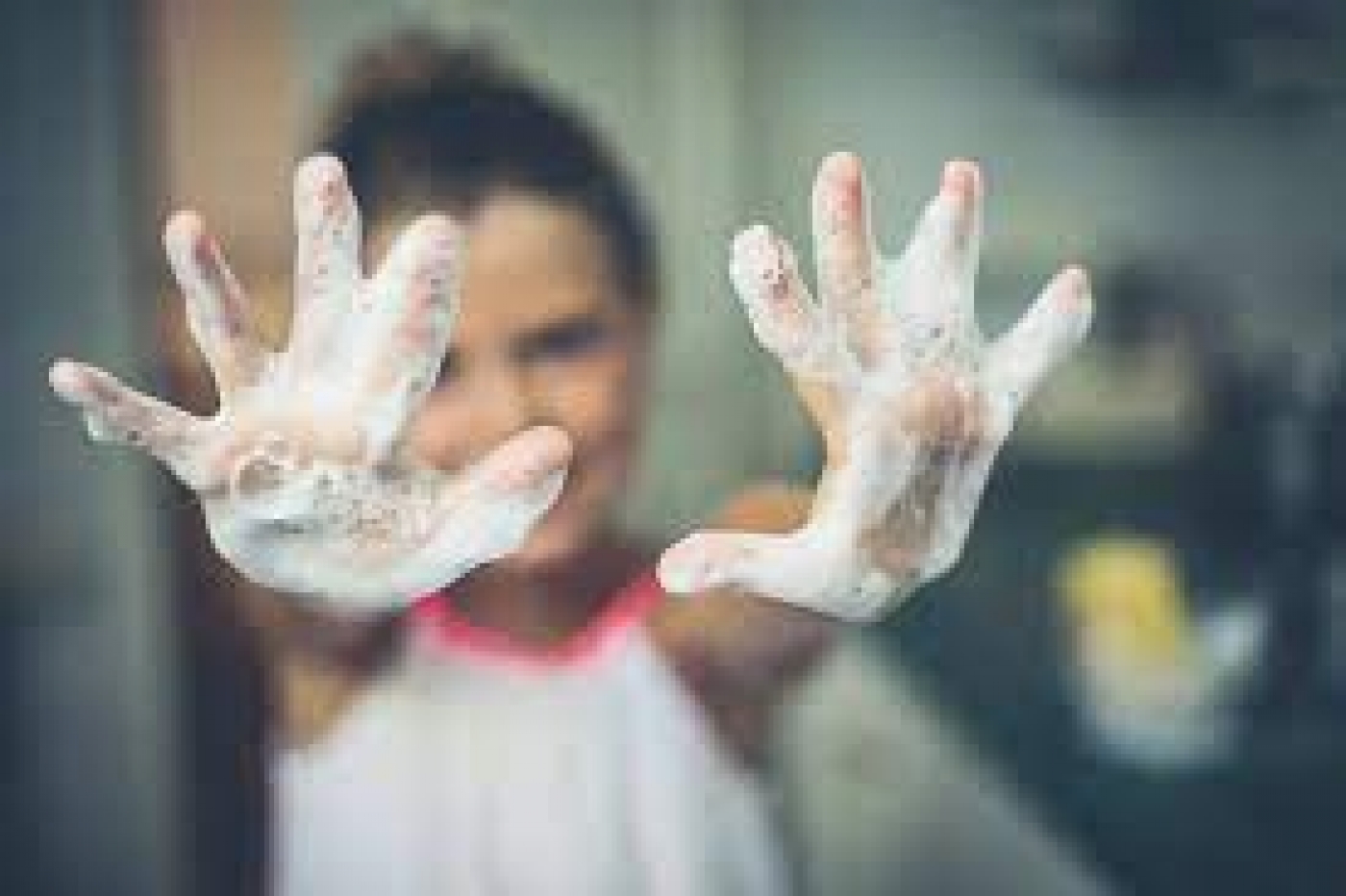contaminated hands to touch other surfaces or other people or we use them to touch our eyes, nose, and mouth or use them to prepare or eat food and drinks, we advertently or inadvertently spread these germs to ourselves or others.
It thus becomes critical that we should not only know how to wash our hands when they are contaminated but we should also make it a habit to regularly and appropriately wash our contaminated hands.
Children too should be taught the act of handwashing and let them develop it into a habit, so it should it has to be done routinely as a family activity.
Some of the critical times we must wash our hands include: before, during, and after preparing food; before, and after eating food; before and after caring for someone at home who is sick with diarrhea or vomiting and before and after treating a cut or wound.
Also, hands must be washed after using the toilet, changing diapers or cleaning a child after defecation and before feeding a child. We should also not forget to wash our hands after blowing our nose, coughing or sneezing, and also after touching an animal, animal waste or animal feed as well as after touching garbage among others.
Five steps to wash hands
Wet your hands – Clean running water is recommended because standing basins may be contaminated.
Lather your hands – apply enough soap to cover the front and back of the hands and in between the fingers. Soaps lift pathogens from the skin and it has been proven that the use of soap allows people to wash their hands more thoroughly than when water alone is used.
Rub your hands together and scrub for at least 20 seconds – ensure you wash the front and back of the hands, in between fingers and under the nails. Scrubbing creates friction that aids pathogens removal from the skin, and when done for a longer period, it will make more pathogens to be removed.
Rinse your hands – This should be done pretty well under clean, running water. Rinsing washed hands in a basin may cause hand re-contamination.
Related News
Dry your hands – This is done using most preferably disposable tissues. Wet and moist hands are easily re-contaminated, hence the need to dry them.
The most commonly missed areas during handwashing are: the thumb, the wrist, the areas between the fingers, and under the fingernails. So, we should ensure we don’t leave them out when washing our hands.
The use of artificial nails and chipped nail polish potentially harbor microorganisms, so they are not often encouraged if one wants to have hands free of germs.
Use of hand sanitisers in place of soap and water
Though using soap and water is the surest way to remove germs from the hands but when not immediately available, alcohol – based hand sanitiser containing at least 60% alcohol can also be used. But it should be borne in mind that hand sanitisers cannot get rid of all types of germs, may not be very effective when hands are visibly soiled with dirt or grease and might not be able to remove harmful chemicals like pesticides from hands.
How to use hand sanitisers
Apply it to the palm of one hand.
Cover all surfaces of your hands with the applied gel.
Rub the hands and fingers together for about 20 seconds by which time, the hands are expected to have dried.
It should be noted that inasmuch as regular handwashing is very beneficial, frequent hand washing can damage the skin by drying it, so moisturizing lotion is often recommended to prevent this. Dry skin can cause skin damage that increase the risk of infection transmission.
Conclusions
Never underestimate the tremendous power handwashing wields against germs! The 20 seconds spent at the sink to wash hands could be all what is needed to save our lives and those of our family members. So, we must never let down our guards at any time against these deadly germs that lurk everywhere around us and that gleefully adopt our hands to cause diseases that can end up being fatal.
Source: healthwise.com







